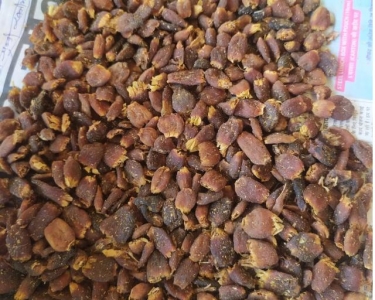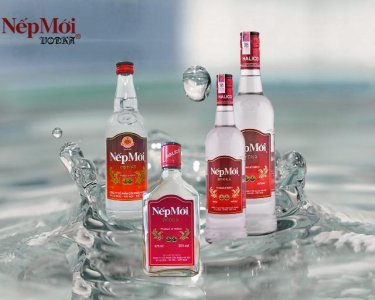Live animals
Couldn't find the product you want?
Fill out this form to request the product.
Products You May Like
Export from Comoros
The major economic sectors of Comoros include agriculture, fishing and forestry. The agricultural sector is the most important part of the country's economy, constituting 40% of the GDP, employing 80% of the labor force, and being the source of most exports. Services such as tourism, construction, and commercial activities also contribute to the Comoros GDP.
The main crops cultivated on the Comoros are vanilla, cloves, copra, perfume essences and essential oils. The country is the world's largest producer of ylang-ylang essence used in the production of perfumes. Comoros is, in addition, the world's second-largest producer of vanilla. The main food crops are coconuts, bananas, and cassava.
Comoros have quite rich forest areas, various fruit trees and tropical hardwoods. The island of Grande Comore is specialized in the production of timber.
The main industry of the country is related to the production of perfume essences. There are also other small industries such as printing, carpentry, handicrafts, shoes production and sawmills, which are destined to the internal markets.
Comoros is the world's 194th largest exporter, the major exports being vanilla, essential oils, cloves, scrap iron, handicrafts. The country's main export partners are France, Germany, India, Singapore and the USA.
Import to Comoros
As it was mentioned above, the main source of Comoros exports and the main economic sector is agriculture. However, Comoros is made up of islands and fishing could be a significant part of the country's economy, but the potential of this industry isn't fully explored and realized yet.
Other economic branches, such as tourism, are also slowly developing. Tourists come mainly from France, South Africa and the United Kingdom.
Comoros doesn't have sufficient natural resources and much soils suitable for agriculture, which results in the country's need to import most of the necessary food products. The major imported food product is rice and it is imported in bulk. Other imports, which are also of much higher value than exports, include petroleum, meat, iron, steel and cement.
The Comoro Islands is the world's 197th largest importer, its main imports being food products (rice, meat, sugar), fuel, refined petroleum, cement, motor vehicles, consumer goods. The main import partners of Comoros include France, Madagascar, China, India, Pakistan, UAE and Kenya.
Check Out Export Portal: A Site That Lets You Export Live Animals
If you are looking to buy and export animals, then you came to the right place! Export Portal's Live Animals Department is an online marketplace for sellers and buyers of any livestock. We work to contribute to the live export industry, which brings many economic advantages and other benefits to countries that rely heavily on livestock imports. In fact, in just Australia alone, this industry contributes roughly $1.8 billion to the country's GDP each year. Moreover, it also ensures food security while helping people meet their protein needs as well.
Finding the Right Animal
We feature a wide range of pigs, cows, sheep, goats, horses, rabbits and hares, turkeys, bees, and fish for sale. An increasing number of American, Australian, German, South African, Argentinian, and Italian farmers and companies are advertising their livestock with Export Portal, portraying just how effective and helpful our site is.
To help customers make more informed purchasing decisions, our site lets users narrow down their searches by the age, breed, and sex of the animal. If you are feeling hesitant to shop on our site and want more detailed information, make sure to check out our seller ratings and reviews, which are written by our buyers and customers. We also collaborate with hundreds of trusted international shipping companies that arrange the transport of all kinds of animals and birds to any country in the world.
Online Shopping is More Simple with Export Portal
Export Portal is an ideal site for everyone who is an avid online shopper. Our convenient options make it easy to find and buy whatever you are looking for. Our seller network from all over the world has everything you need, and our customer support team will make sure you can find it. Our wide assortment of products will be sure to provide you with the best shopping experience. Make sure to check out our site and items today!
Customs requirements of Comoros
Comoros Customs Contacts
Email: dir.cooperation@douanes.km
Address: Customs service, B.P. 2259 Moroni
Telephone: +269 3350712
Comoros represents an archipelago situated in the Indian ocean between Madagascar and Mozambique. The country's nearest neighbours are Tanzania and the Seychelles. Comoros Islands is a member of the COMESA (a regional trading union of 23 countries with common external tariff), Indian Ocean Commission and African Union.
Tariffs
Comoros Islands apply the COMESA Common External Tariff of 0% for capital goods and raw materials, 10% for intermediate products, and 25% for finished products. The applied tariff on products such as alcohol and tobacco vary from 180%, 200% up to 250%. Goods imported from COMESA members are free from custom duties.
Product certification, labelling and packaging
Comoros has a liberalized trade policy with no licenses or quotas on imports and exports. Generally there are two product categories which require an import license: pharmaceuticals and live animals and fresh and dried vegetables. The import license for pharmaceuticals can be obtained from the Ministry of Health. The Ministry of Agriculture issues permits for vegetables. Rice is the only product under state control. Goods coming from the EU countries and Monaco are imported freely, whereas goods imported from other countries need a specific license. Import licenses can be obtained from the Ministry of Economic Affairs. Licenses are valid for 6 months, but also can be extended for another six-months period. Products such as arms and explosives, drugs, literature and products which may affect religion are prohibited to import.
The labelling of products is similar to French labelling regulations. Products should contain all needed identifying marks (port marks etc.) and packages should be numbered. Packing elements which can bring disease into the country are banned.
Documents for import/export
Standard documentation:
- Bill of lading
- Certificate of origin
- Commercial invoice
- Customs declaration
- Foreign exchange authorization
- Packing list
Additional documents for export:
- Technical standard/health certificate
- Terminal handling receipts
- Cargo release order
- Inspection report
Additional documents for import:
- Fiscal identification card
- Import license
- Insurance certificate
- Pre-shipment inspection clean report of findings
Sources:
http://www.comoros-islands.com/PublicFiles/Doing%20business%20in%20Comoros%20(English).pdf





